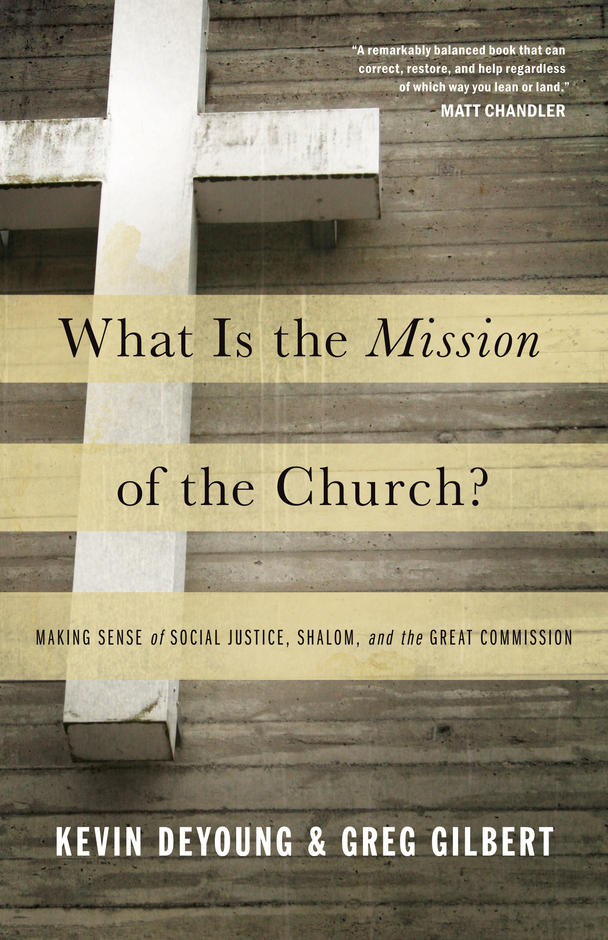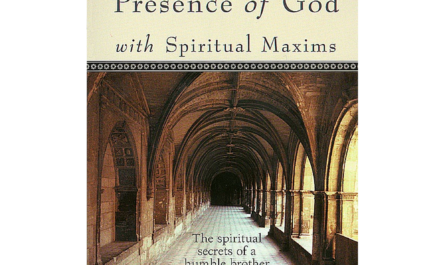A lot of people will hate this book by Kelvin DeYoung and Gregg Gilbert because it is anti social transformation and social justice, the current buzzwords among the woke. Well, those and Critical Race Theory.
The whole book is working to convince the reader in so many words that the primary mission of the church is making disciples for Christ – win people to Christ and build them up in Christ. Proclaim, baptise, teach.
According to the authors, every other programme in church should be evaluated in that light– is it bringing the church closer to its primary mission. For example, if the church decides to donate playground equipment, the path should be clear how this opportunity will help impact that community for Christ.
DeYoung and Gilbert argue that because our resources, time and energy are limited to spend in all the good we could think of, spiritual opportunism in all good works should always be the goal. We can’t claim to love someone by taking care of their physical needs and neglect their most important needs — spiritual needs.
Because our resources, time, energy are limited to spend in all the good we could think of, spiritual opportunism in all good works should always be the goal.
Interesting ideas in the book:
DeYoung and Gilbert say they do not believe the mission of the church is to build the kingdom or partner with God in remaking the world. God is building his kingdom. Him, not us. We can enter the kingdom, receive the kingdom, stop others from entering the kingdom but we can’t claim to be building the kingdom. It’s God’s work from start to finish. The kingdom is what it is. God alone establishes and ushers it in.
The primary task of Christians is not to build or establish the kingdom but rather be witnesses to it, representing the suffering forgiving king. We are subjects and heralds, not agents.
If we hope only for renewed cities and restored bodies on this life, we are of all people most to be pitied. Therefore, we should not overspiritualise social action by making it equivalent to God’s shalom. Our mission is not identical with Christ’s earthly work. Even less do we think we have to complete what the Son somehow failed to accomplish.
God’s mission
Pg 42 One of the biggest missteps in much newer mission literature is an assumption that whatever God is doing in the world, this too is our task,” the authors write. “What if the work of salvation, restoration and recreation are divine gifts to which we bear witness, rather than works we collaborate?”
Pg46 God does not send out his church to conquer. He sends us out in the name of the one who already conquered.
The authors argue it was not Jesus’ driving ambition to heal the sick and meet needs of the poor as much as he cared for them. He was sent into the world to save people from condemnation. He came to seek and save the lost. He came to give his life as a ransom for many. If anything, the clamour for meeting needs sometimes became a distraction to Jesus. While I agree Jesus did not try meet every need in Judea in his time, I also know he did not ignore needs. Wherever he went he did good, healing many who were sick and afflicted. How do we reconcile these two aspects?
DeYoung and Gilbert reiterate the idea that the Bible is the story of how a gracious God who is also perfectly just and righteous acted to bring sinful man back to his presence and favour. The whole story of the Israelites, from Abraham, through Moses, Joshua, King David etc is certainly not a story of humanity finding its footing and working to restore creation to its Edenic state.
Abraham, for example, does not leave Ur intent on blessing the Cannanites. The blessing is not something we bestow on others as we work for human flourishing. Rather, the Abrahamic blessing comes to those who put their trust in Jesus.
The Israelites conquer the nations by military force, not by any incarnational mission. The nations are more often threats to Israel’s religion than they are opportunities for service.
Most importantly, DeYoung and Gilbert argue that you cannot proclaim the full gospel if you leave out the message of the cross, even if you talk for an hour about all other blessings God has in store for the redeemed. Unless the blessings of the gospel of the kingdom are connected to the cross, you don’t have a gospel at all. To proclaim the inauguration of the kingdom and all other blessings without telling people how they may become partakers of those blessings is to preach a non gospel.
Pg 107, 108 The kingdom belongs to and is ruled by King Jesus. It is the kingdom of God’s beloved son. Jesus alone is the promised king. This keeps us from thinking that there are multiple pathways into the kingdom of God. There is salvation in no one else. The way to the kingdom us submission to the king.
Pg 123 We fear that over the years, as cities don’t become havens of virtue and justice, as poverty persists, as governments remain susceptible to corruption, Christians will find themselves discouraged and possibly questioning the goodness or power of God. A more biblically realistic way to think about the world in the present age is to realise that until Jesus comes back, we will always have the poor with us and that our societies will always be marked by corruption, injustice, even oppression. Bible-informed realism will keep us from getting crushed when it turns out we can not fix the world.
Pg 130,131 They introduce the principle of moral proximity — the closer the need, the greater the moral obligation to help. Moral proximity refers to how connected we are to someone by virtue of familiarity, kinship, space or time.
Pg 183 When eternity finally comes, we will live in a land that was made and created for us, under a kingdom that was won and established for us by a saviour who died and was resurrected for us. The gospel is the good news of salvation in all its parts, that is for us and not in the least by us.
Pg 208 It seems clear from scripture that Adam’s mandate does not remain unaffected by the fall. The Noahic mandate has “subdue” conspicuously absent: it is no longer a matter of progression to paradise but preservation in a fallen world. The mandate given to Adam to rule the earth is fulfilled not ultimately by us, but by the last Adam. We still live in the Noahic version of the cultural mandate.
Pg 212-213 and Pg 229 were touchy for me. The authors say that when we do good, we cannot claim to be fulfilling part of the church’s mission – we are not expanding the kingdom, we are not sharing the gospel without words… We are doing what redeemed human beings do. Even when our cities don’t change in a decade or two, we will stay motivated by loving God, loving people and being faithfully present. If our priorities mirror the MDGs, we will be redundant.
Pg 238 DeYoung and Gilbert conclude the book by stating that worship is the end of the story, not human flourishing, not even a redesigned world. Christian mission must always aim at making, sustaining and establishing worshippers. We are not called to bring a broken planet back to its created glory. This statement will cause a ruckus with believers who focus on reigning with Christ in a new renewed earth, I think.
We are to call broken people back to their creator. It is not the church’s responsibility to right every wrong or meet every need though we have biblical motivation to do some or both. It is our responsibility, unique mission and plain priority that neighbors and nations may know Jesus and believe in him.



